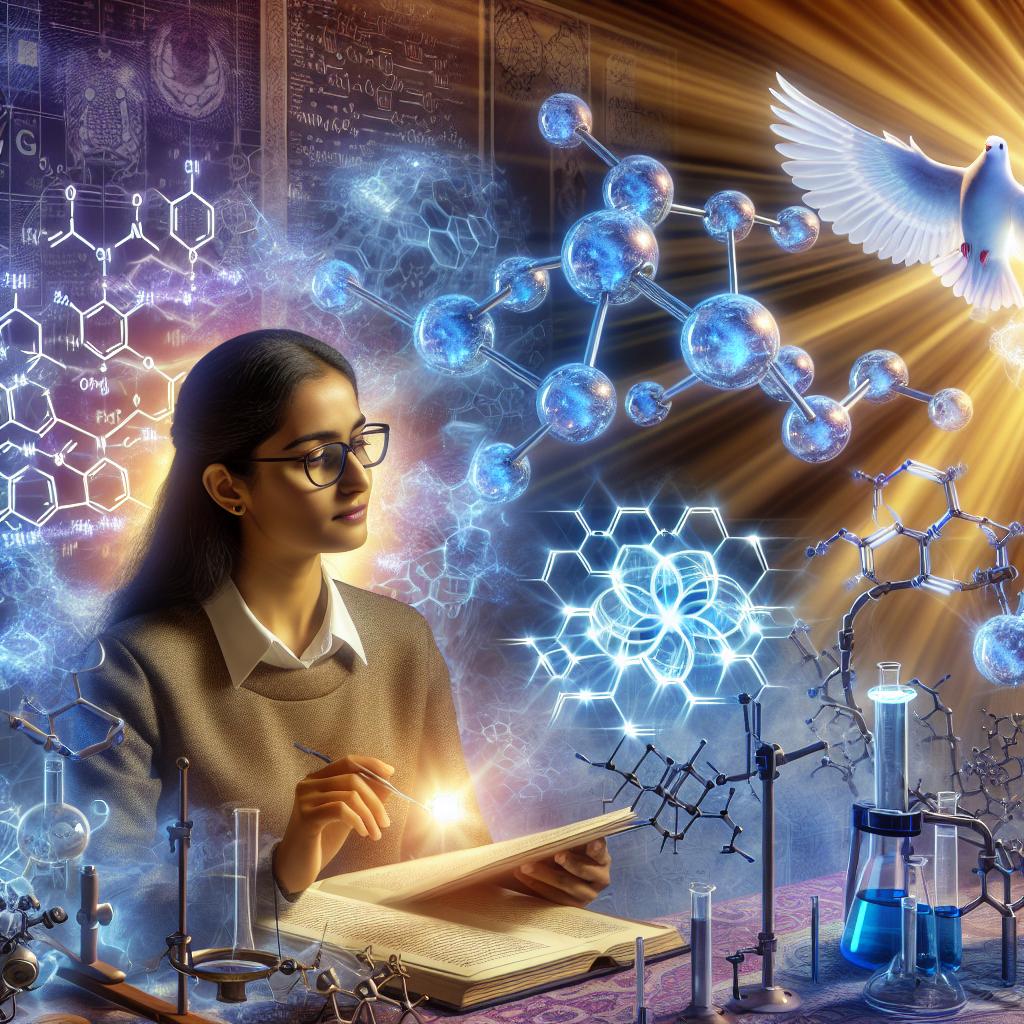
6-Day Revelation: Exploring Theoretical Chemistry Through a Christian Lens
Published: 17 September 2024
Edward A. Boudreaux: Theoretical Chemistry in Six Days
Why 50 Scientists Choose to Believe in Creation
Introduction
Edward A. Boudreaux, a theoretical chemistry professor at the University of New Orleans, Louisiana, holds a Ph.D. in chemistry and has spent several decades in research and education in the field of theoretical and inorganic chemistry. In this article, Professor Boudreaux explores the origins issue from a creationist perspective. He argues that the material universe is in a stable state of static equilibrium, with its origins being nonrepeatable events that occurred in the past. While evolutionists claim to find evidence for their theories, Professor Boudreaux maintains that there is no true scientific evidence to support evolution.
The Geological, Biological, and Cosmological Sciences
The geological, biological, and cosmological sciences are often viewed as sources of evidence for evolution. However, Professor Boudreaux asserts that these disciplines have established themselves as ivory towers from which evolutionist gurus promote their theories without satisfying all the tests essential for establishing the scientific validity of evolution. He points out that there are hypotheses, models, suppositions, and inferences formulated within these disciplines but none of them amount to true scientific evidence.
Chemical Design and Creation
As a theoretical chemist, Professor Boudreaux focuses on the unique characteristics of chemical elements as evidence for creation. He highlights the exceptional properties of carbon (C), which is crucial for the formation of biomolecules such as proteins, DNA, RNA, and cellulose. Carbon's ability to participate in various types of covalent bonding is unparalleled among other elements. Professor Boudreaux argues that this unique feature is a reflection of created design rather than random evolutionary processes.
He also discusses the stability and unique properties of elements like oxygen (O) and iron (Fe). Oxygen exists as a diatomic molecule (O2) and possesses two unpaired electrons, which allows it to bind to the iron atoms in hemoglobin and transport oxygen in the bloodstream. While other molecules can replace oxygen in binding to hemoglobin, they do not replicate its function. Similarly, there are no noniron analogues of hemoglobin that can effectively perform its role in blood metabolism.
Complexity and Design in Biomolecules
Professor Boudreaux further explores the complexity and design found in biomolecules such as proteins, DNA, and RNA. He explains that proteins are composed of amino acids bonded together by polypeptide bonds. Only 20 specific amino acids are involved in all protein structures, and they exist in two structural forms, D and L. While both forms naturally occur, proteins are exclusively made of the L form. This specificity extends to sugars (saccharides) as well, with only ribose existing in DNA and RNA structures.
DNA and RNA themselves are highly complex, with specific patterns of nucleotide bases forming nucleosides. These nucleosides join together to create long chains coiled in a right-handed helix. Professor Boudreaux highlights the precise sequencing of nucleotides and the specific pairing of base pairs in DNA. These intricacies suggest a deliberate design rather than random evolutionary processes.
Chemical Evidence for Creation
Drawing from his expertise in chemistry, Professor Boudreaux argues that the chemical evidence supports creation over evolution. He emphasizes the complexity and specificity found in chemical elements, their properties, and their interactions within biomolecules. These characteristics defy the probability of random evolutionary processes accounting for such design.
The Bible as a Source of Creation
Having concluded that creation by an omnipotent God is the most scientifically reasonable explanation for life's origins, Professor Boudreaux turns to the Bible as a reliable source. He asserts that if the Bible is truly the Word of God, it must be accurate in every detail, including the account of creation in six literal days. While some may interpret these days as indefinite periods of time, he argues that the Hebrew word for day (yom) can only mean a literal 24-hour period within the context of the Genesis creation account.
Why This Matters
Understanding the scientific and theological perspectives on creation is essential for individuals seeking to reconcile their faith with scientific theories. Exploring the evidence for creation can deepen one's understanding of God's design in nature and provide an alternative viewpoint to mainstream evolutionary theories. This discussion encourages Christians to engage critically with scientific theories and approach the subject with an open mind.
Think About It
Consider the complexity and specificity found in the chemical properties of elements and biomolecules. Reflect on how these characteristics align with a deliberate design rather than random chance. How does this understanding impact your perspective on the origins of life? Explore further resources to expand your knowledge and engage in constructive discussions about creation and evolution.
